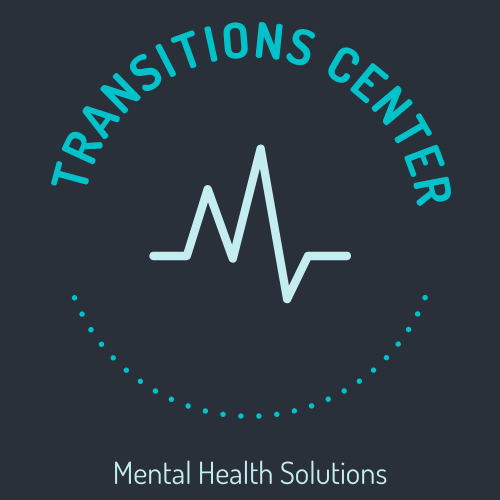Mental health is a crucial aspect of overall well-being that affects every aspect of our lives. It impacts how we think, feel, and behave, and can have a profound impact on our relationships, work, and daily activities. Unfortunately, mental health is often stigmatized and misunderstood, which can prevent people from seeking the help they need.
In this article, we will explore the key aspects of mental health, common conditions and symptoms, and the barriers that often prevent individuals from seeking treatment. We will also discuss effective solutions for improving mental health, including both professional treatment options and self-care strategies. Additionally, we will highlight the importance of supporting mental health in the workplace and breaking down the stigma surrounding mental health.
Finally, we will call for action and encourage everyone to prioritize mental health and to seek support when needed. By working together to raise awareness, reduce stigma, and provide effective solutions, we can create a world where mental health is valued, understood, and prioritized.
The Impact Of Mental Health On Overall Well-Being
Mental health has a profound impact on overall well-being, affecting every aspect of our lives. When our mental health is compromised, we may struggle to cope with the demands of daily life, and our ability to function may be significantly impaired.
Poor mental health can lead to a range of physical and emotional symptoms, including anxiety, depression, insomnia, fatigue, and physical pain. It can also affect our relationships, work performance, and overall quality of life.
In contrast, good mental health promotes resilience, self-esteem, and a positive outlook on life. It helps us manage stress, cope with challenges, and build strong, supportive relationships. Ultimately, mental health and overall well-being are intimately linked. By prioritizing our mental health and seeking support when needed, we can improve our overall well-being and lead more fulfilling, satisfying lives.
Common Mental Health Conditions And Their Symptoms
Mental health conditions are diverse and complex, ranging from mild to severe and affecting people of all ages, genders, and backgrounds. Some of the most common mental health conditions include:
1. Depression: Feelings of sadness, hopelessness, and low energy that persist for weeks or months. Symptoms may also include changes in appetite, sleep disturbances, and difficulty concentrating.
2. Anxiety: Excessive worry or fear about everyday situations or events, which can lead to physical symptoms such as trembling, sweating, and a rapid heartbeat.
3. Post-Traumatic Stress Disorder (PTSD): A condition that can develop after experiencing or witnessing a traumatic event. Symptoms may include flashbacks, nightmares, and avoidance of triggers that remind the person of the trauma.
4. Bipolar Disorder: A mood disorder characterized by periods of mania and depression, with symptoms that may include high energy, impulsivity, and risk-taking behavior during manic episodes, and feelings of hopelessness and low energy during depressive episodes.
5. Schizophrenia: A chronic, severe mental health condition that affects a person’s perception of reality, resulting in hallucinations, delusions, and disordered thinking.
6. Obsessive-Compulsive Disorder (OCD): A condition characterized by persistent, intrusive thoughts or impulses (obsessions) and repetitive behaviors or mental acts (compulsions) that the person feels compelled to perform in response to these obsessions.
It’s important to note that mental health conditions can manifest differently in different people, and that some people may experience symptoms of multiple conditions simultaneously. If you or someone you know is experiencing symptoms of a mental health condition, it’s important to seek help from a qualified mental health professional.
Effective Solutions For Improving Mental Health
Improving mental health is an ongoing process that requires a multifaceted approach. There are a variety of effective solutions that can help improve mental health, including:
1. Professional Treatment: Mental health professionals, such as therapists and psychiatrists, can provide a variety of evidence-based treatments to help manage symptoms and improve mental health. These may include talk therapy, medication, and other forms of treatment.
2. Self-Care: Practicing self-care is essential for maintaining good mental health. This can include engaging in regular exercise, getting enough sleep, eating a balanced diet, and engaging in activities that bring joy and relaxation.
3. Mindfulness And Meditation: Mindfulness and meditation practices can help reduce stress and improve overall well-being by promoting relaxation and self-awareness.
4. Social Support: Building strong relationships and social support networks can help individuals cope with stress and adversity, reducing the risk of developing mental health conditions.
5. Cognitive-Behavioral Therapy (CBT): CBT is a type of talk therapy that focuses on identifying and changing negative patterns of thinking and behavior. It has been shown to be effective in treating a variety of mental health conditions, including depression and anxiety.
6. Medication: In some cases, medication may be recommended to help manage symptoms of mental health conditions. It’s important to work closely with a qualified healthcare professional to determine the best course of treatment.
Overall, the most effective solutions for improving mental health will depend on an individual’s unique circumstances and needs. It’s important to seek help from a qualified healthcare professional to determine the best course of treatment for you.
Professional Treatment Options For Mental Health
Professional treatment for mental health conditions typically involves a range of evidence-based interventions provided by trained mental health professionals. Some of the most common professional treatment options for mental health include:
1. Talk Therapy: Talk therapy involves meeting with a mental health professional on a regular basis to discuss concerns and work on coping strategies for managing symptoms. Types of talk therapy may include cognitive-behavioral therapy (CBT), dialectical behavior therapy (DBT), and psychodynamic therapy.
2. Medication: Medication can be an effective treatment option for certain mental health conditions, such as depression, anxiety, bipolar disorder, and schizophrenia. Psychotropic medications, such as antidepressants, anti-anxiety medications, mood stabilizers, and antipsychotics, can help manage symptoms and improve overall functioning.
3. Group therapy: Group therapy involves meeting with a mental health professional and other individuals who are experiencing similar concerns to discuss and work on coping strategies. Group therapy can provide a supportive environment for individuals to share experiences and learn from one another.
4. Residential Treatment: Residential treatment programs provide a highly structured and intensive treatment environment for individuals with severe mental health conditions. These programs typically involve round-the-clock care, medication management, and a variety of therapeutic interventions.
5. Psychiatric Hospitalization: Psychiatric hospitalization may be necessary in emergency situations where a person’s mental health condition poses a risk to their safety or the safety of others. Hospitalization provides a safe and structured environment for individuals to receive necessary treatment and support.
It’s important to work closely with a qualified mental health professional to determine the best course of treatment for your specific needs and circumstances. With the right treatment and support, individuals can successfully manage their mental health conditions and lead fulfilling lives.
Self-Care Strategies To Improve Mental Health
Self-care strategies are essential for improving and maintaining good mental health. Here are some effective self-care strategies that can help improve mental health:
1. Practice Mindfulness And Meditation: Mindfulness and meditation practices can help reduce stress and promote relaxation. This can include techniques such as deep breathing, visualization, and body scanning.
2. Engage In Regular Exercise: Exercise is a great way to improve mood, reduce stress, and increase overall well-being. This can include activities such as walking, running, yoga, or weight lifting.
3. Get Enough Sleep: Getting enough sleep is essential for good mental health. Aim for 7-8 hours of sleep each night and establish a consistent sleep routine.
4. Eat A Balanced Diet: Eating a healthy and balanced diet can help improve mood, increase energy, and reduce the risk of developing certain mental health conditions. Focus on consuming a variety of whole foods, such as fruits, vegetables, lean proteins, and whole grains.
5. Engage In Activities That Bring Joy And Relaxation: Engaging in activities that bring joy and relaxation can help reduce stress and improve overall well-being. This can include activities such as reading, listening to music, practicing a hobby, or spending time in nature.
6. Set Boundaries: Setting healthy boundaries is important for protecting your mental health. This can include learning to say no to activities that cause stress or taking breaks when feeling overwhelmed.
7. Connect With Others: Building strong relationships and social support networks can help individuals cope with stress and adversity, reducing the risk of developing mental health conditions.
Remember that self-care is not a one-size-fits-all approach. What works for one person may not work for another. It’s important to explore and experiment with different self-care strategies to find what works best for you.
Supporting Mental Health In The Workplace
Supporting mental health in the workplace is critical to creating a healthy and productive work environment. Here are some ways employers can support their employees’ mental health:
1. Create A Positive And Supportive Work Culture: Encourage open communication and prioritize the well-being of employees. Foster a workplace culture that supports work-life balance, inclusivity, and values diversity.
2. Provide Mental Health Resources: Offer resources such as an Employee Assistance Program (EAP) or mental health benefits, including counseling services or access to mental health professionals.
3. Reduce Stigma: Educate employees about mental health, reduce stigma around mental health issues, and encourage open conversations about mental health.
4. Provide Flexible Work Arrangements: Allow for flexible work arrangements, such as working from home or offering flexible schedules, to support employees’ work-life balance.
5. Encourage Breaks And Self-Care: Encourage employees to take breaks and prioritize self-care, such as taking a walk or engaging in mindfulness practices.
6. Promote Healthy Habits: Encourage healthy habits such as regular exercise and healthy eating, and provide resources such as wellness programs or access to a gym.
7. Provide Training For Managers And Supervisors: Provide training for managers and supervisors to recognize signs of mental health issues and how to provide support to employees.
By taking a proactive approach to supporting mental health in the workplace, employers can create a positive work environment that promotes employee well-being, productivity, and engagement.
Moving Forward: A Call To Action For Improved Mental Health
In conclusion, improving mental health is a critical aspect of overall well-being, and there are effective solutions available to help individuals achieve better mental health. From self-care strategies to professional treatment options, there are many ways to support mental health and reduce the risk of mental health conditions.
It’s important to prioritize mental health in our personal lives and workplaces, to reduce the stigma around mental health issues and increase access to resources and support. By taking a proactive approach to improving mental health, we can create a society that values and supports the mental well-being of all individuals. Together, we can work towards a future where mental health is a priority, and individuals are supported in their journey towards good mental health. Let’s take action to support ourselves and our communities in achieving better mental health, for a brighter and healthier future for all.
About the Authors
Transitions Center for Natural Mental Health Treatments for a variety of physical and mental dependency issues and conditions. Substance use disorders are difficult to understand for many people. The physical and mental aspects of any substance disorder are complicated and unique to the individual suffering. The differences between physical and psychological dependency vary but have some similarities. Transitions Center for Natural Mental Health Treatments help the public know what to look for as a means of helping a loved one cope with the challenges of mental health disorders.
Special thanks to Mary Jane’s CBD Dispensary one of the top CBD online stores. We’re so glad you found our site. You can find your way back to the blog anytime by clicking on our logo at the top of any page or using our site map for a complete list of pages and their associated content. If you want to stay connected with Mary Jane’s CBD Dispensary, we would love it if you could check out their site today! And don’t forget about Facebook and Twitter too – both are great ways to keep in touch with what’s happening at MJCD. Until next time!

